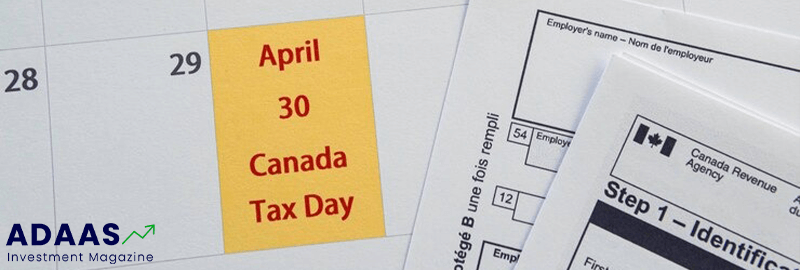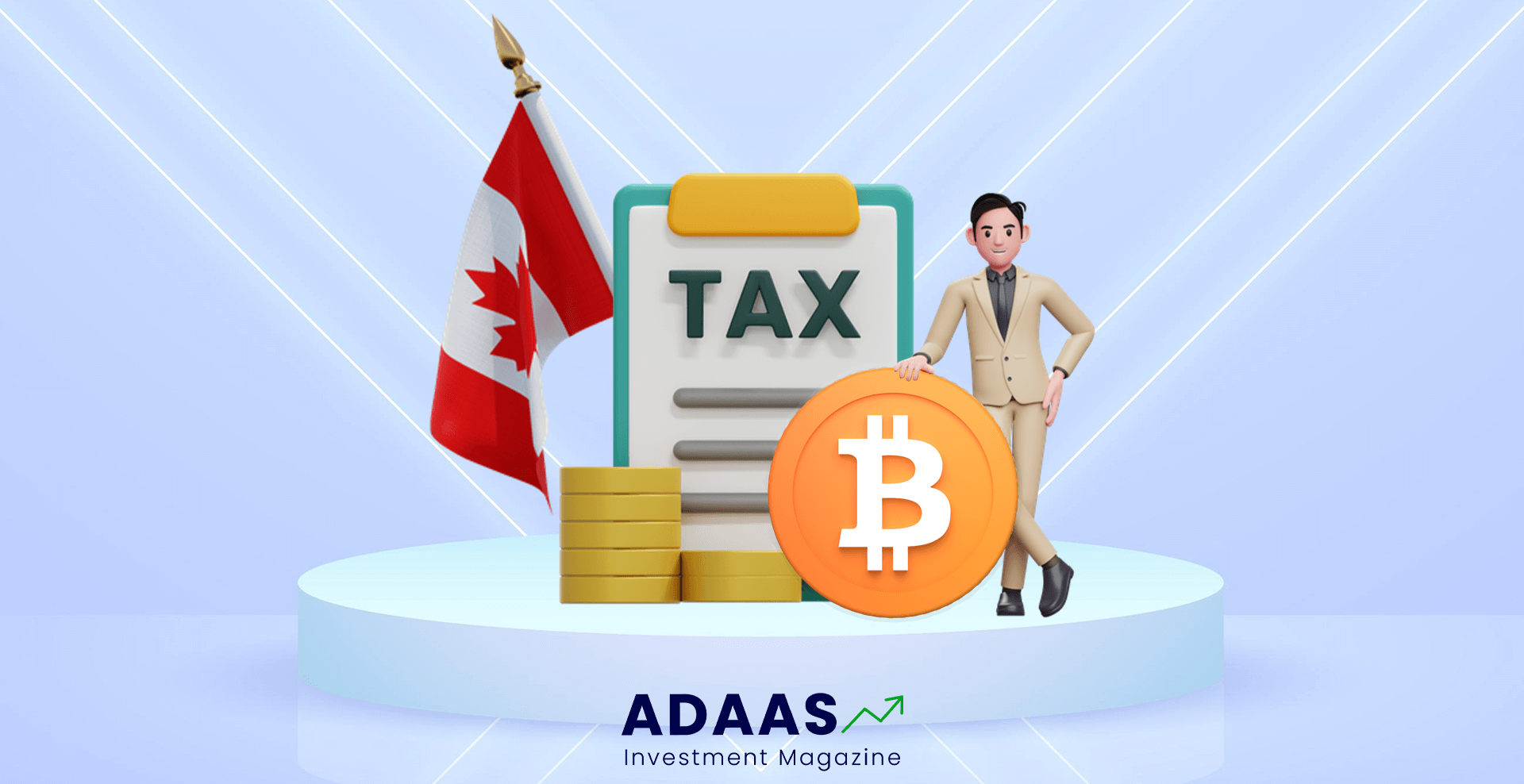Crypto Tax in Canada: Everything You Need to Know About Crypto Taxes in Canada!
A Comprehensive Guide to Understanding Crypto Taxes in Canada: Obligations, Reporting, and Best Practices
By reading the article “Crypto Tax in Canada” published in Adaas Investment Magazine, you will quickly get acquainted with Everything You Need to Know About Crypto Taxes in Canada! This level of familiarity can be enough when you need educational information about this topic.
Cryptocurrency is all the rage, but what happens if you make money or bought something using cryptocurrency in Canada? First of all, breathe – you’re not alone, and there’s no need to worry just yet. In this article, we’re going to look at crypto tax in Canada, including the regulations surrounding it and what you can do to keep on top of it all.
Table of Contents
Income and Capital gains tax implications
When trading digital currencies, there are two tax implications you should be aware of. Capital gains and income taxes. This guide will explain everything you need to know about crypto tax in Canada and how it affects you as a Canadian trader or investor.
We’ll go over crypto tax law updates and new policy measures, how crypto gains are calculated by tax authorities, what is considered taxable income or capital gain, how you pay your crypto taxes, and more…
Is crypto gain taxable in Canada?
The short answer is yes, but it depends on what type of crypto-assets you hold and when you acquired them. Canadian tax law treats cryptocurrency like any other property, meaning that if you’re trading or selling for profit or personal use and are not a business or incorporated entity, then your gains will be considered income.
This means you’ll need to report these transactions on your taxes as capital gains. To calculate your capital gain (or loss) from each transaction, simply subtract your cost basis (what you paid for something) from its proceeds (what you sold it for). Note: If an asset has appreciated in value since you purchased it, then you may have realized a capital gain.
How much is crypto taxed in Canada?
According to CIRA, tax treaties and information exchanges exist between Canada and other nations. Additionally, The Canada Revenue Agency’s (CRA) policy is to treat cryptocurrencies like properties when it comes to taxation. This means you will need to pay capital gains taxes on any profits from cryptocurrency trading. Capital gains in Canada are taxes owed on capital or property that have increased in value. In order for a profit to be considered a capital gain, there must be a sale of an asset for more than its purchase price.
In crypto trading, your initial investment is usually your purchase price plus any fees incurred during trades. If you make a profit off of your crypto investments, those profits would be subject to capital gains taxes. When calculating your net profit off of crypto trades, take into account your original investment and add on fees such as exchange fees or withdrawal fees if applicable. To determine how much tax you owe on these profits, use either CRA’s online calculator or speak with a professional accountant who can give you advice specific to your situation.
How are you taxed on crypto-to-crypto trades?
When you trade cryptocurrencies for one another, you have a taxable event, but it’s not a realized capital gain or loss. The gain or loss is realized every time you trade one type of cryptocurrency for another. Since each transaction has two different types of crypto on each side, that’s technically two trades.
So if you buy 10 ETH with 10 BTC and then later sell 5 ETH for 15 BTC, there are actually three transactions here: (1) ETH to BTC; (2) BTC to ETH; and (3) ETH to BTC. Each of these transactions is subject to tax. This can get tricky because there isn’t an exchange rate between all cryptocurrencies, so you may have to do some conversions and math before calculating your taxes properly.
If you use your cryptocurrency holdings as currency and purchase goods or services with them, then when you file your taxes at year’s end it’s treated as a regular income transaction just like using cash would be.
How can I avoid paying taxes on my crypto?
Taxing cryptocurrencies is a big issue for regulators across most countries. So it may seem strange that some people are going out of their way to avoid paying taxes on crypto trades and transactions. The reason? Cryptos aren’t seen as ‘real’ money by many people, who think they can get away with not declaring earnings or losses. This is a huge mistake, as it’s just a matter of time before regulators catch up.
When do I pay taxes on crypto gains/losses?
One of the most common questions I receive is when do you pay taxes on crypto gains/losses? Are cryptocurrencies subject to income tax? While that’s a really good question and I’m not sure that there’s an easy answer, what I do know for certain is that for 2022 any capital gains realized on the disposal of cryptocurrency will be treated as business income.
Cryptocurrency Tax Laws in Canada
When you make a transaction using cryptocurrencies like Bitcoin, your purchase isn’t typically taxed. This is because cryptocurrencies aren’t regulated or recognized as legal tender in most countries around the world. As a result, many cryptocurrency transactions happen without being tracked. So do transactions involving other cryptocurrencies, like Litecoin and Ethereum. While there are different taxes and regulations that affect every country, it’s good to know about some of them before investing your money.
The tax agency for Canada is called Canada Revenue Agency (CRA). But instead of giving you specific tax laws for all 50 US states (which would be impossible), we are going to talk more generally about what most governments want from their citizens when they invest their hard-earned money into cryptocurrency markets.
How to calculate crypto tax in Canada?
It’s a question crypto investors in Canada often ask: How much tax do I pay on my cryptocurrency gains? Unfortunately, there is no simple answer to that. It depends on a whole host of factors including what currency you are trading in, how long you have held it, and whether you have sold at a profit or loss.
However, don’t fret – below we take you through all the steps and calculate your crypto tax bill when filing your taxes in Canada. If it doesn’t cover every possible scenario, it certainly covers many of them! It will save you hours of research as well as give a great overview of cryptocurrency taxes in Canada from start to finish.
The step-by-step guide to calculating cryptocurrency tax in Canada
The first step in calculating cryptocurrency tax in Canada is to figure out how much you earned. To do this, determine the value of each cryptocurrency at the time that it was received. If you have not sold or traded any cryptocurrencies since you received them, the value of each one would be the price on the day that it was received.
The next step is to identify what type of income it is by determining whether or not you incurred a loss when exchanging your cryptocurrency for Canadian dollars. Losses are either short-term losses or long-term losses and they can be deducted from other types of income that are considered taxable in Canada.
The last step is figuring out how much tax you owe on your cryptocurrency. The CRA provides tables that allow you to do a calculation based on your province or territory. The example above uses Ontario, which takes half of all short-term capital gains and 25% of all long-term capital gains. As such, someone who received 1 BTC at $10,000 and sold it at $15,000 would owe $150 of income tax for 2018 (half of their profit) and an additional $37.50 of income tax for 2018 ($15K * 0.25). This totals $187.50 in Canadian income taxes owed because they did not incur any losses when exchanging their 1 BTC for CAD.
This is just a brief overview of how to calculate cryptocurrency taxes in Canada. It assumes that your only source of income is your cryptocurrency and it uses simple math. In reality, each person’s situation will be different and there are many other factors that need to be considered, including how much you received as gifts (which can also impact capital gains) or whether you earned money while mining or trading coins. Be sure to speak with a financial advisor if you have questions or want help completing your own calculations.
The End Words
At Adaas Capital, we hope that by reading this article you will be fully immersed in Everything You Need to Know About Crypto Taxes in Canada! You can help us improve by sharing this post which is published in Adaas Investment Magazine and help optimize it by submitting your comments.
FAQ
Is crypto gain taxable in Canada?
The short answer is yes, but it depends on what type of crypto-assets you hold and when you acquired them.
Is there any online crypto tax calculator for Canada?
To determine how much tax you owe on these profits, use either CRA’s online calculator or speak with a professional accountant who can give you advice specific to your situation.








